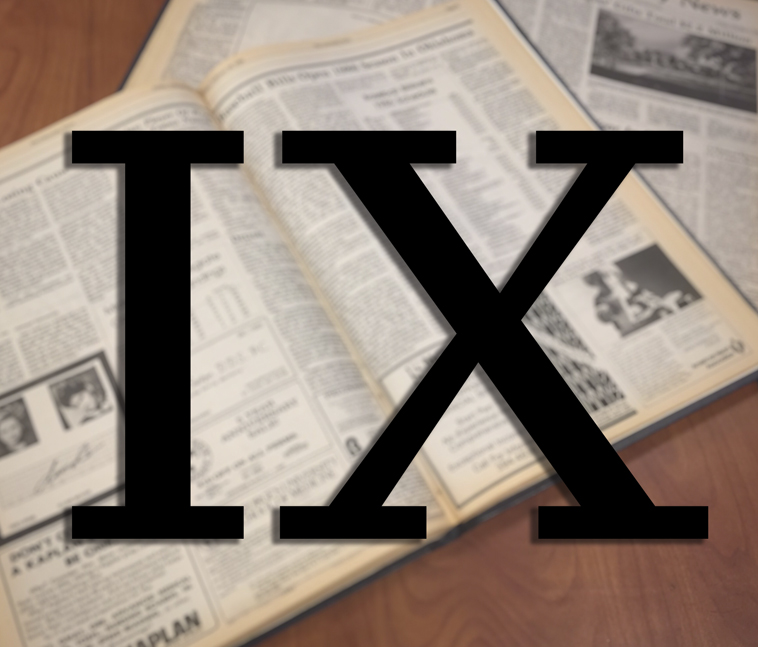False Start for Sexual Misconduct Climate Survey Won’t End Campus Conversation
Discussion about Title IX and sexual misconduct and assault has become more prevalent throughout the SLU community after an incident last fall in which four student athletes were accused of sexual assault. On Feb. 6, conversation on the topic was rekindled on campus and social media by the voluntary withdrawal from SLU by Ty Graves, one of several basketball players who have not been permitted to play or wear the team uniform this season. The University has not confirmed any connection between the initial incident and the benched players.
After the reported assault last September, the Saint Louis University Title IX office sent out an email asking students to complete a Sexual Misconduct Climate Survey. The survey, which was optional and anonymous, was to be used to help the Title IX office gain a better understanding of the experiences SLU students were having on campus pertaining to sexual assault.
Kim Sahr, Equity Officer at the Title IX office, said “Most schools do surveying in order to gain feedback about what students are experiencing. The survey asks questions about perceptions about sexual assault, confusion and personal experience and is completely anonymous and voluntary.”
Unfortunately, a group of SLU students posted information about the survey onto a public forum where others who were not enrolled at SLU could share their own information. The Title IX office considered this a violation of security and that it would now be impossible to tell what answers were actually from SLU students. Because of this, the office felt that they were unable to use the answers from the survey and promptly took the survey down, rendering it useless.
While this particular try didn’t work, the Title IX office says that they will be attempting to put out another survey in the future. This is an important piece of news, especially in the wake of recent situations of alleged sexual assault on SLU’s campus.
This survey was the Saint Louis University’s Title IX office’s first attempt at something of this nature. Sahr says that this kind of tactic to gain information is a widely used but still new practice on college campuses. She says that the survey will help gain a more accurate picture of what is going on in the SLU community.
“We get information when people report things here, but we really have anecdotal information,” said Sahr. “This survey could possibly touch someone who has never reported anything.”
The overall plan for the survey was to help the Title IX office decide how to best educate SLU students about sexual assault and its prevention. Sahr said the results of the survey would be used to shape programming and to tailor outreach and training to the community in ways that were specific to SLU.
“For example, if we got the results back from the survey that said stalking was a major issue on campus, we would then ramp up programming around that particular topic,” Sahr said.
The office plans on putting out a similar survey when they feel the time is right. Sahr says that it is important that the survey is posted during a time of the school year when every student is able to complete the survey thoughtfully. For example, finals week would not be a good time, nor would the first two weeks of campus when first-year students do not have a clear image of what life on campus is like, according to Sahr.
Sahr said that the current challenge facing the office in regards to the survey is now figuring out how to protect the information and the survey so that only SLU students are able to access it.
A survey such as this one would be able to provide very important and relevant information to the Title IX office, especially in light of recent events here at SLU. Local news outlets continue to follow the investigation into a number of Saint Louis University athletes, and quickly make assumptions when players suddenly choose to leave SLU. With a situation like this one being widely discussed and covered by the media, many students might be frustrated or confused at the process of a Title IX investigation. Surveys like this one could help gauge the public knowledge and feeling around situations like this. Even without the survey, however, Sahr says that students are always encouraged to come to the Title IX office and ask questions if they are confused or concerned.
“We have a thorough policy, but it is long and can be a lot to sift through,” said Sahr. “We are here if somebody wants to talk through that process.”
Sahr says that the Title IX office continues to work for the best interests of students and believes that this survey is just one more way they can do that more accurately.
“We are always looking for ways to make sure we are serving the community right and make sure our services are right for the SLU Community,” Sahr said. “Information is power. We want to get the knowledge to students. If something happens, we want people to know where to get help.”
Your donation will support the student journalists of Saint Louis University.




